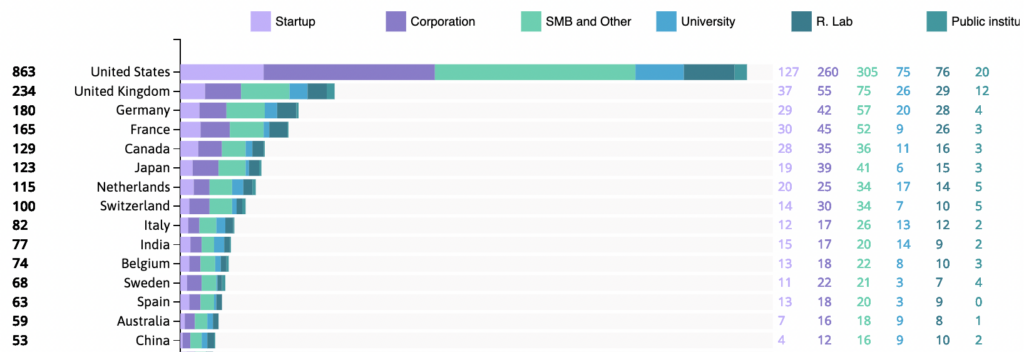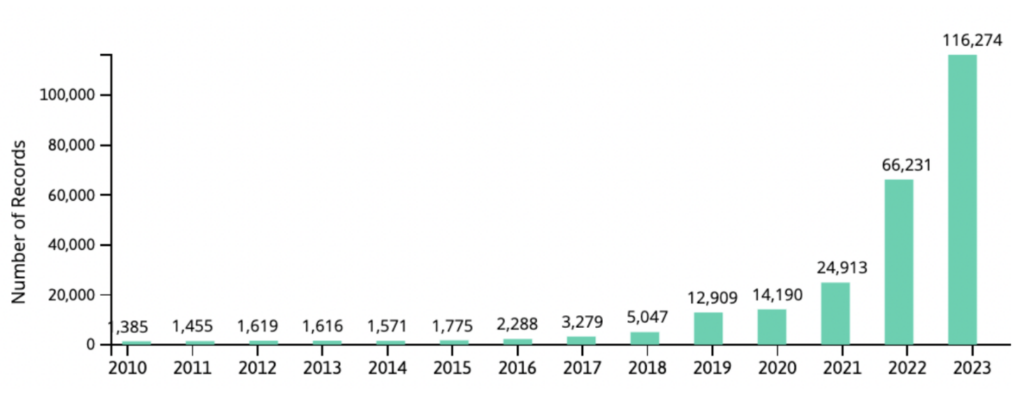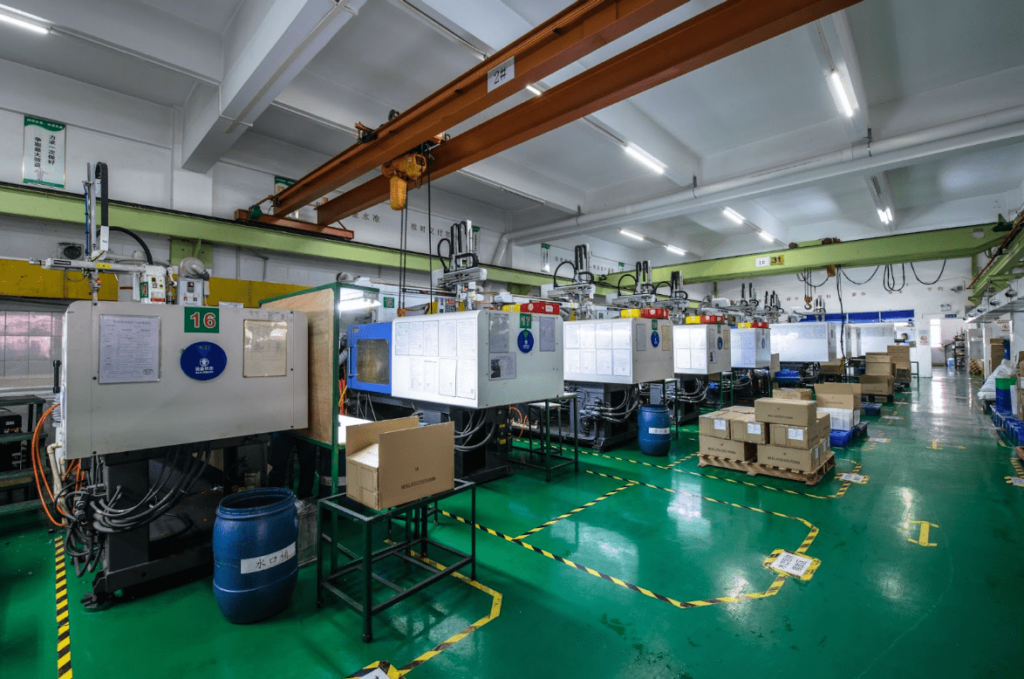At a time where innovation has become a requirement for success, the product manufacturing sector has become a fertile ground for adapting to market changes: day by day, the transformation of the sector highlights the emergence of new trends that are completely transforming the manufacturing landscape.
From the rise of microfactories to the implementation of groundbreaking models such as Factory-as-a-Service (FaaS) or Manufacturing-as-a-Service (MaaS), as well as the adoption of cloud and on-demand solutions, the paradigm of how a production plant is conceived and operated is being redefined.
In this article developed in collaboration with Advanced Factories, we will go through the cutting-edge innovations and trends that are disrupting the manufacturing industry and shaping the digital factories of the future.
Micro Factories
At the forefront of innovation in manufacturing is the emerging trend of micro factories, which is revolutionizing the way companies approach the production of personalized, small-scale merchandise. These micro factories are defined as highly automated setups that allow companies to offer varied, low-volume solutions to meet a range of highly specific demands.

A prominent example of this trend is the micro vehicle startup Luvly, which employs micro factories to facilitate on-demand production. Through this strategy, the company can quickly adapt to market preferences, producing customized vehicles efficiently and profitably.
Another pioneer in the field is Molg, which has established several circular micro factories for the development of technological products. Using techniques such as AI and robotics, Molg has managed to implement an autonomous assembly and disassembly process, thus optimizing efficiency and sustainability in the manufacturing of electronic products.
Furthermore, companies like Saeki Robotics are taking micromanufacturing to a new level, combining 3d printing with Robots-as-a-Service (RaaS) to offer fully automated and on-demand manufacturing. Saeki’s robotic digital manufacturing (RDM) enables the rapid production of large-scale components for various industries, including construction, automotive, aerospace and energy.

Factory as a Service (FaaS) and Manufacturing as a Service (MaaS)
The trends of FaaS (Factory-as-a-Service) and MaaS (Manufacturing-as-a-Service) are gaining a lot of momentum within the industry, offering companies a flexible and efficient alternative to meet their production needs. This approach consists of outsourcing manufacturing processes to specialized third parties, allowing companies to focus on their core competencies while delegating production to certain strategic partners.

One of the leading companies in this field is Combi Works, which offers full outsourcing partnerships for a variety of sectors. This company is responsible for the production of a wide range of components and assemblies, providing its customers with the flexibility necessary to adapt to fluctuations in demand and market requirements.
Belgian startup Screvle is also revolutionizing the production of smart electronics through the development of an innovative platform that combines hardware and software and allows companies to outsource the manufacturing of electronic products in an efficient and customized manner, thus optimizing production processes and reducing associated costs.

In the pharmaceutical sector, Argonaut leads the way in MaaS, offering comprehensive services for drug manufacturing. This company specializes in the formulation, filling and finishing of pharmaceutical products, and can also lead the quality control and assurance steps of drug development. Argonaut production is distinguished by minimizing the loss of medicinal substances, reducing the risk of contaminating particles, and offering flexible packaging options to adapt to different vial sizes and dosage ranges.
On-demand cloud manufacturing
On-demand production is positioning itself as a global strategy that is radically transforming the landscape of modern manufacturing moving production to the digital world. This new approach, known as Cloud Manufacturing (CMfg), has been developed from advanced manufacturing models, such as application processing systems (ASP), additive manufacturing (AM), nomadic manufacturing (NM) and manufacturing networks (MGrid), leveraging business information technologies and cloud computing.

Companies like Xometry are leading this revolution, providing platforms for on-demand distributed manufacturing, offering rapid prototyping services using technologies such as CNC, sheet metal fabrication, 3D printing, selective laser sintering, or injection molding.
Another notable company in this sector is Fractory, which offers a cloud-based platform for distributed manufacturing in the metallurgical industry. Fractory allows its users to upload CAD files to obtain material manufacturing quotes, offering solutions such as laser cutting, plasma, flame, water jet, welding, among others.
Finally, Batchforce is a Dutch company that also stands out for its online platform that connects manufacturers with a global network of decentralized CNC machines for on demand production. This innovative platform facilitates agile production by removing geographic barriers and connecting users with a wide range of manufacturing capabilities.

In short, this set of innovation trends is currently ruling the manufacturing industry, offering solutions that drive efficiency, customization and adaptability in a constantly evolving market. The ability to adapt and adopt these emerging trends will be crucial for companies to remain competitive and relevant in the current and future business landscape.
On-demand additive manufacturing (3D printing)
Finally, on-demand additive manufacturing, more popularly known as 3D printing, is one of today’s most prominent trends, with more niche applications emerging as a result. For example, multi-material 3D printing allows the creation of objects with different properties within the same print, which greatly expands design possibilities. Advances in printing even allow the creation of human tissues and organs for medical purposes, representing a revolutionary step in the field of regenerative medicine. These advances are rapidly transforming the way we think about manufacturing and product design, opening up a world of possibilities in both industrial and medical fields.

A company developing tech of this kind is Trimech, a leader in engineering solutions which offers online and on-demand 3D printing and manufacturing solutions. With a focus on innovation and excellence, Trimech provides different solutions including computer aided design (CAD), computer aided manufacturing (CAM), computer aided engineering (CAE) and basic printing services.
Along the same lines there’s Fictiv, a leading digital manufacturing platform that offers innovative solutions for companies of all sizes. Through an agile and efficient approach, the company enables its customers to bring their products quickly and cost-effectively to market, offering a wide range of services including rapid prototyping, CNC manufacturing and printing services.
Finally, Hubs is another company that is completely revolutionising the industry, presenting itself as a provider of on-demand industrial 3D printing services. Its portfolio of services includes CNC machining, 3D printing, sheet metal fabrication and injection moulding.

In summary, the innovative trends highlighted in this article are radically transforming the manufacturing industry, offering solutions that drive efficiency, customization, and adaptability in an ever-evolving market. The ability to adapt and adopt these emerging trends will be crucial for companies to remain competitive and relevant in the current and future business landscape.





